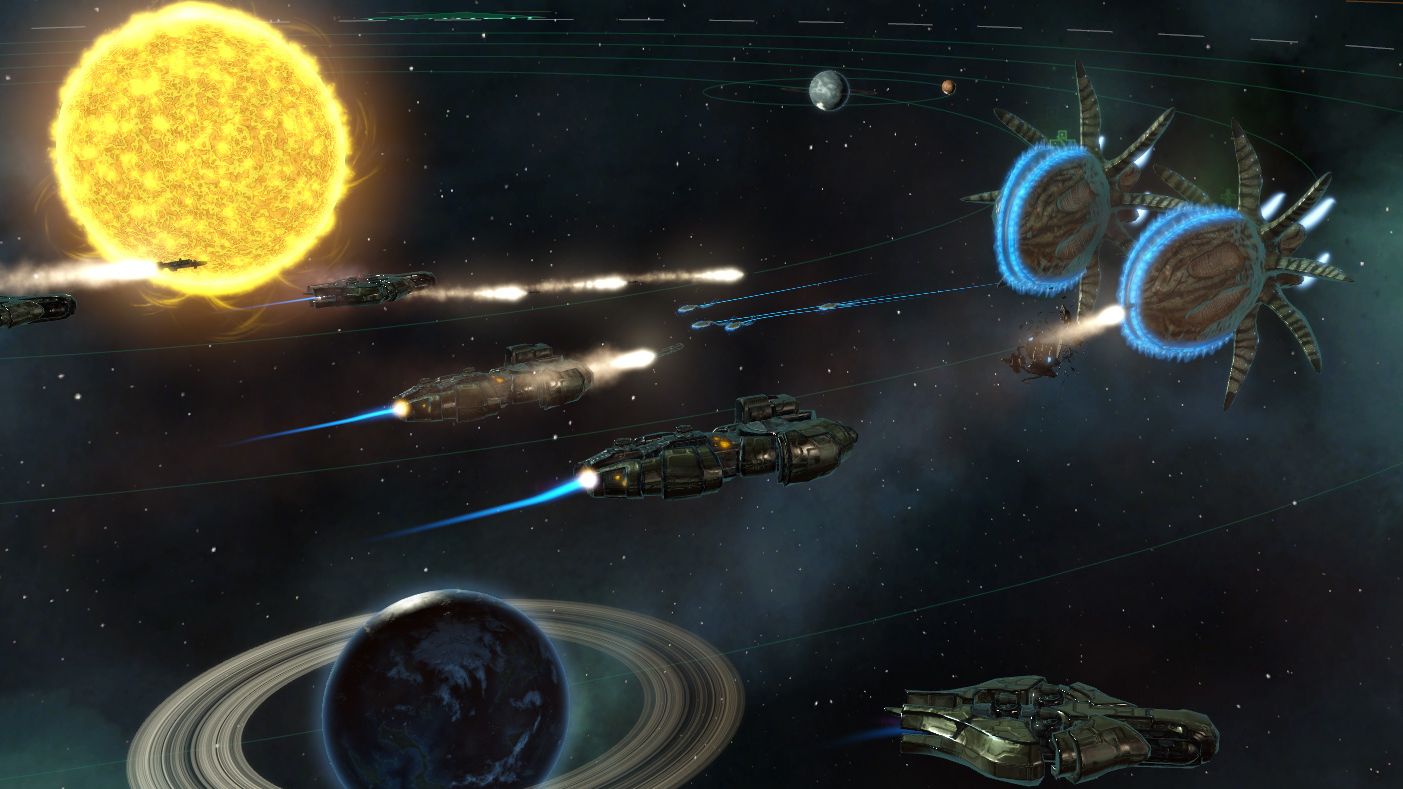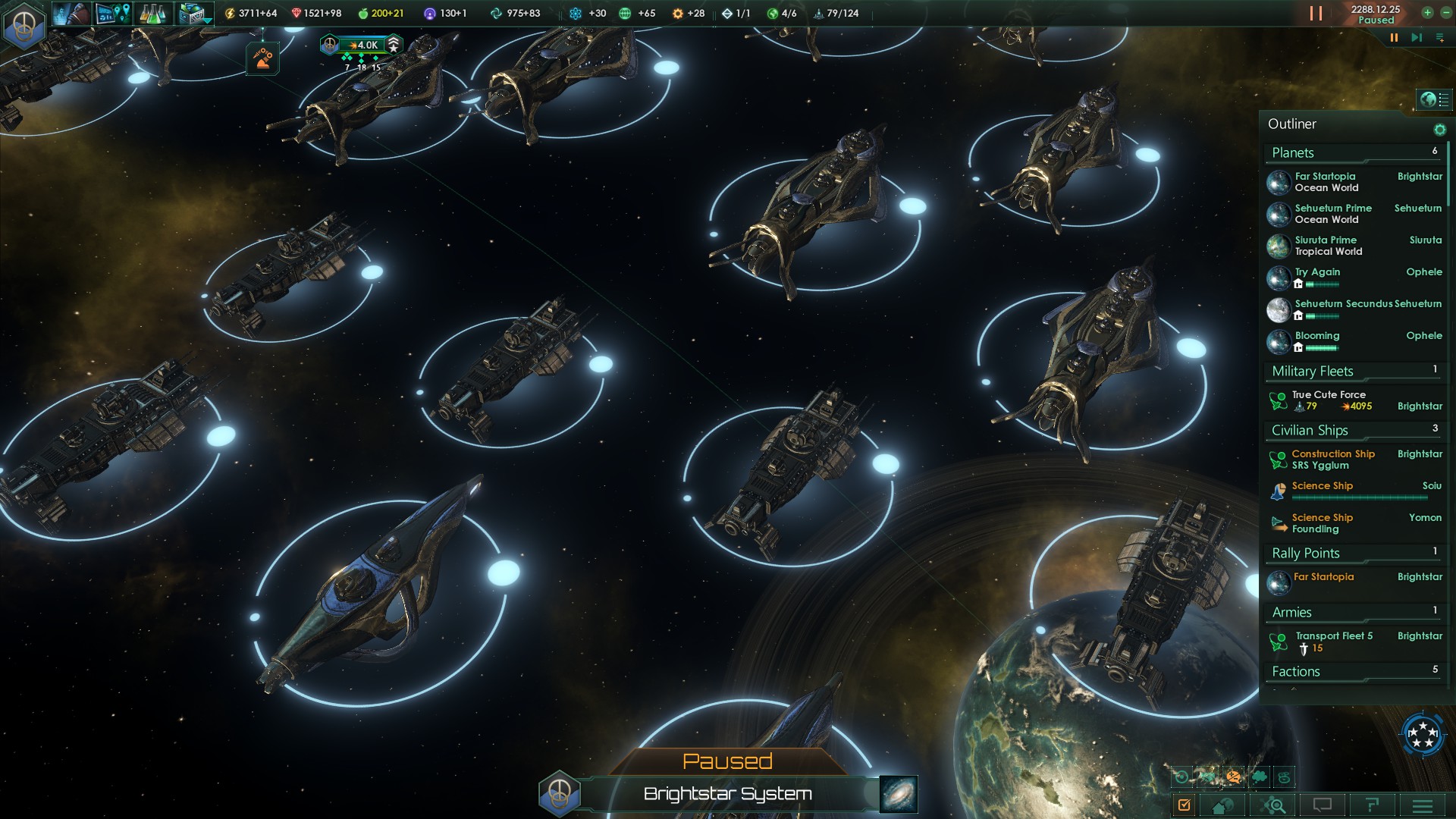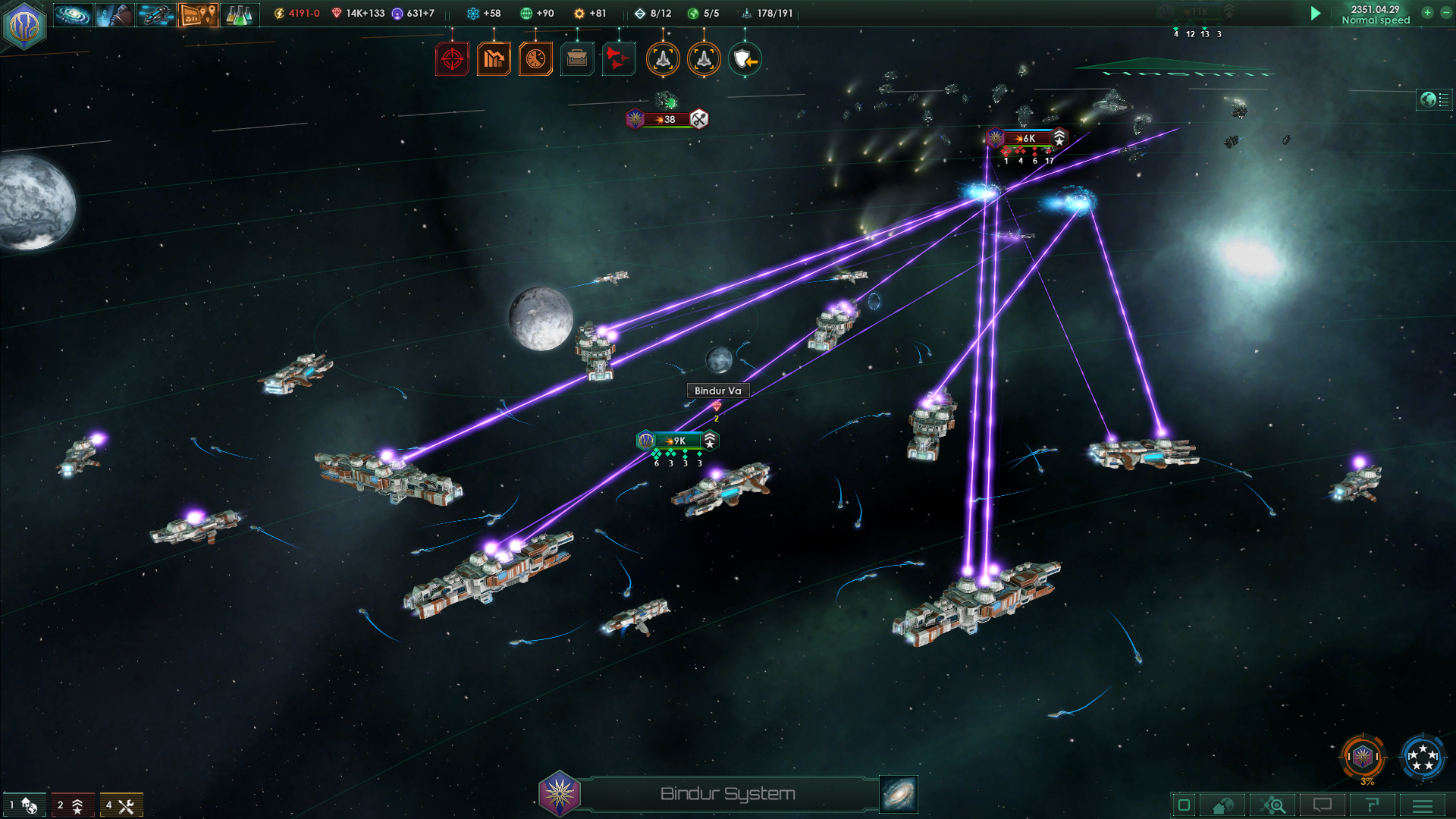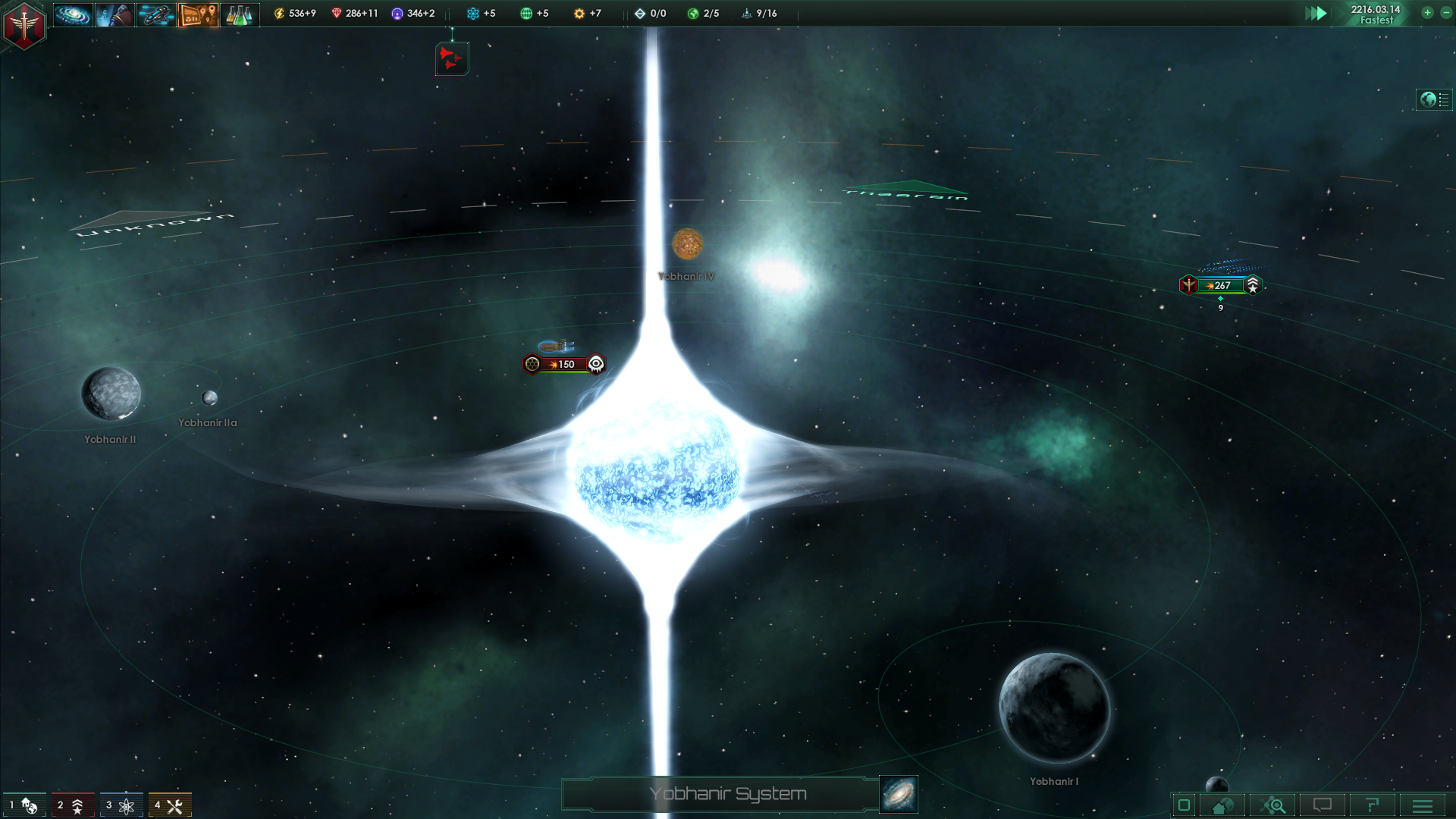Planet destroyers and diplomacy: the expanding universe of Stellaris
Lots of space remains unexplored, but not for long.

Since its launch a year ago, the xenophiles at Paradox have been busy expanding Stellaris with a slew of patches, meatier updates and two significantly different chunks of DLC. Problems, both endemic to 4X games and specific to Stellaris, have been grappled with, and it’s in better shape than ever, but the team still has big plans for its future.
A lot of the studio’s focus, post-launch, has been on Stellaris’ mid-game. It’s a tricky phase to get right because the galaxy starts to become familiar, the thrills of exploration and meeting new races cease, and everything just slows down a little. It is even more jarring in Stellaris, where the exploration-centric early-game is incredibly busy.
Utopia, the most recent and largest expansion, declares war on the mid-game by entirely reworking species design and politics, considerably extending the development of space empires. A lot of Utopia’s concepts were originally developed for an earlier expansion, and the story-based DLC, Leviathans, was made instead.
“We ended up going back to the drawing board a bit because we realised we needed to spend more time addressing customer feedback,” game director Martin Anward recalls. “We took a lot of those concepts, various ideas we had and feedback about politics, and we decided to make an expansion that’s all about internal politics.”

The impact can be felt throughout the game, not just in the middle, and some of the largest changes first become clear right at species creation. “There are a lot of features that I like, but the one I like the most, because it has the biggest impact on the player, is Traditions and Ascension Perks. They add all these strategic choices as the game goes on. And it makes sure things keeps happening like, ‘I’m going to go down this tree, I’m going to turn my people into robots.’ It gives you these long-term plans to work towards.”
For the uninitiated, Traditions and Ascension Perks help you define your species right at the start and then continue to do so as you play. You can create a species of genetically augmented psychics, tech-obsessed robots or even a hivemind, each with their own mechanics and paths to progress down. Eventually, perks unlock that let you create megastructures, like gargantuan ringworlds or energy-generating Dyson spheres.
“I feel that it’s good now,” Anward says, after giving it some thought. “Earlier I would say it was OK. There was definitely a point where not enough things were happening. Now I feel… I will never be completely happy with it, but the mid-game is in good shape.”
The biggest gaming news, reviews and hardware deals
Keep up to date with the most important stories and the best deals, as picked by the PC Gamer team.
If he seems ambivalent, it’s only because he’s looking ahead, to what Stellaris could be. Utopia was all about politics and populations, now he wants to give diplomacy a similar treatment. He envisions a galactic UN or space Holy Roman Empire, an institution where membership means better trade deals and other benefits, at the cost of being forced to abide by certain rules. And then there’s war...

“Obviously I want planet destroyers,” he confesses. “But it’s going to be an interesting challenge making that for a game with a warscore system. I also want to, overall, give more of a strategic layer to war—a better way for the player to understand how a war unfolds instead of ships just moving around in pretty battles.”
With the mid-game improved, the team's attention now turns to the end-game. The massive galaxy-spanning crises could be more balanced and more interesting, Anward thinks, but the main goal is to simply extend the end and add more things to strive for once you’ve finished building megastructures and developing your species.
In a year or two, we’ll have a much more defined universe than we have now.
Martin Anward
But Stellaris is more than wars and politics—it’s a vehicle for intriguing sci-fi yarns and emergent stories. The Leviathans story DLC largely handled the latter, throwing new enemies, AI groups and a new end-game threat into the mix. And several updates have expanded the former, not least the Kennedy patch, which saw Alexis Kennedy, founder of Failbetter Games and now writing for BioWare, pen an appropriately spooky tale.
“I definitely do want to bring in new writers,” Anward says. “And I’d love to have Alexis Kennedy back, he did a terrific job and he was a real pleasure to work with.” It’s through these stories that he hopes the Stellaris universe will start to feel more tangible. “As we’re doing this sort of thing, we’re adding little bits and pieces and adapting them for the Stellaris universe, so we’re actually building a real setting out of all these pieces. In a year or two, we’ll have a much more defined universe than we have now.”

Along with more tales of space adventure and extradimensional horrors, characters are another area that he’d like to see enhanced. “Not at all Crusader Kings 2 level, we’re not doing that, but I feel like it’s a bit of a waste to have all these characters when there’s not much to them. I’d like to integrate them more into the stories. So you could have a story going on and it’s about this character and they play a pivotal part in it. Or you could have a politics story—an admiral from the fleet gets elected to office, rises up to become ruler and then proclaims a galactic empire.”
With the multitude of ideas that Anward and the Stellaris team have, it’s likely a good fit for Paradox’s prolific DLC model. But it has one advantage over the likes of Europa Universalis 4: it’s not shackled to history. The universe is a very big place, and unrestrained, Stellaris could go anywhere. And with Iain M Banks’ Culture novels as one of Anward’s biggest inspirations, it might go to somewhere very weird.

Fraser is the UK online editor and has actually met The Internet in person. With over a decade of experience, he's been around the block a few times, serving as a freelancer, news editor and prolific reviewer. Strategy games have been a 30-year-long obsession, from tiny RTSs to sprawling political sims, and he never turns down the chance to rave about Total War or Crusader Kings. He's also been known to set up shop in the latest MMO and likes to wind down with an endlessly deep, systemic RPG. These days, when he's not editing, he can usually be found writing features that are 1,000 words too long or talking about his dog.

